
The Business of Fashion
Agenda-setting intelligence, analysis and advice for the global fashion community.

Agenda-setting intelligence, analysis and advice for the global fashion community.
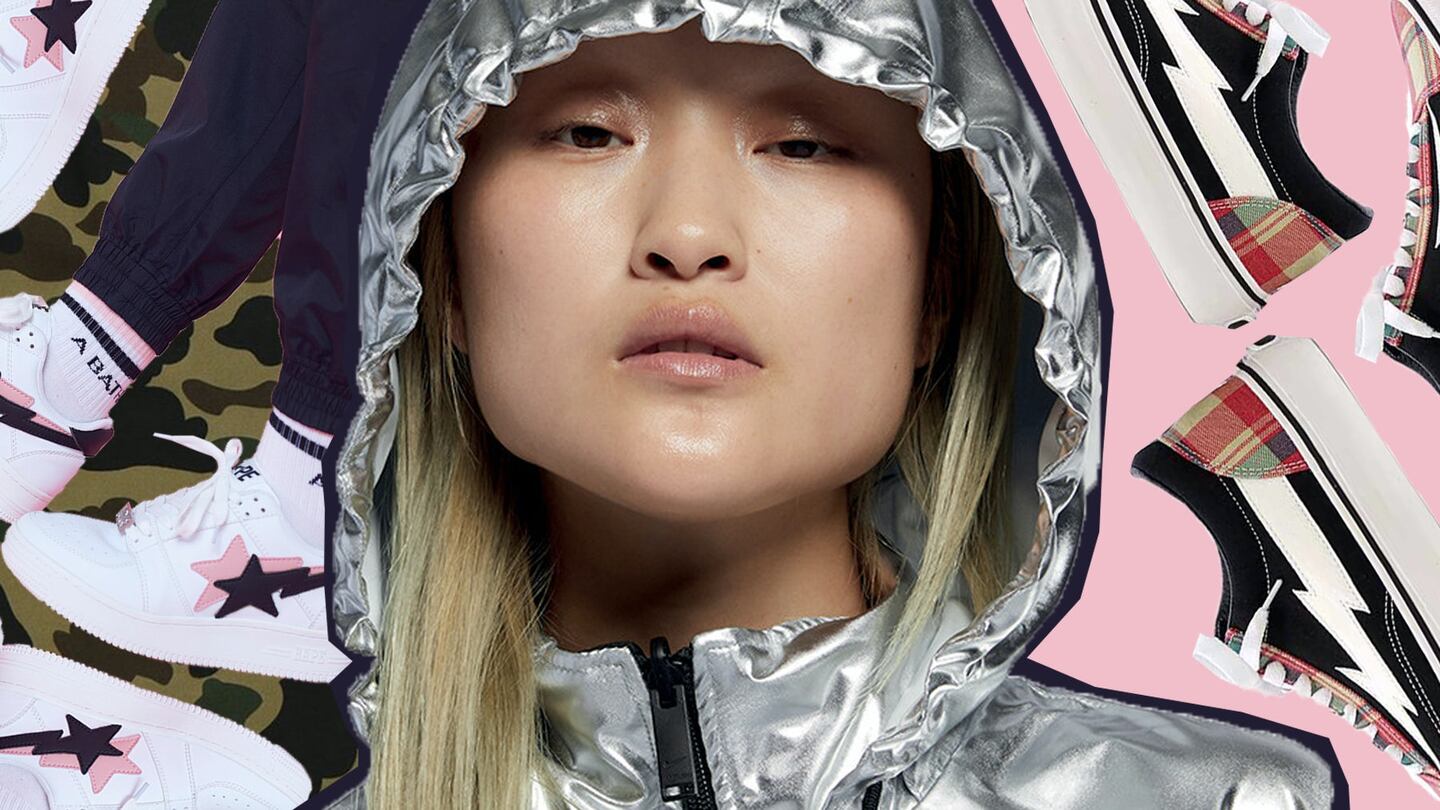
Hello BoF Professionals, welcome to our latest members-only briefing. China’s colossal size and dynamism makes it a top priority for any global business, but it remains opaque to many in the fashion industry. Leveraging our rare access and local knowledge, the BoF China team demystifies the Chinese market with weekly industry analysis and the wider socio-cultural context you need to sharpen your focus.
SHANGHAI, China — At Innersect, the Shanghai-based annual convention of high-end streetwear brands and aficionados, a multitude of young women pose for selfies in front of social-media-friendly retail displays and browse racks of limited edition brand collabs that have "dropped" for the occasion.
Having run from December 7 to 9, the event — which bills itself as “where culture happens”, and featured not only a range of curated premium streetwear fashion, but also art, tattoo culture, and music-related pop-ups — is a central focus of China’s bustling streetwear scene.
Prominent among the exhibitions, panels and pop-ups were female-focused efforts. Indeed, the whole convention plays into the existing habits of young female consumers in China. This is in spite of the fact that streetwear across the world is generally acknowledged to be a trend driven by young men and sneaker culture.
ADVERTISEMENT
Yoon Ahn is one half of the creative duo behind Japanese high-end streetwear brand Ambush as well as Dior Homme’s jewellery designer, and arrived in Shanghai to launch a highly-anticipated collaboration between her brand and Nike. “I kind of blame the fashion [world for this] lack of understanding on streetwear. They just kind of boxed the idea into [being about] Nike sneakers,” Yoon said.
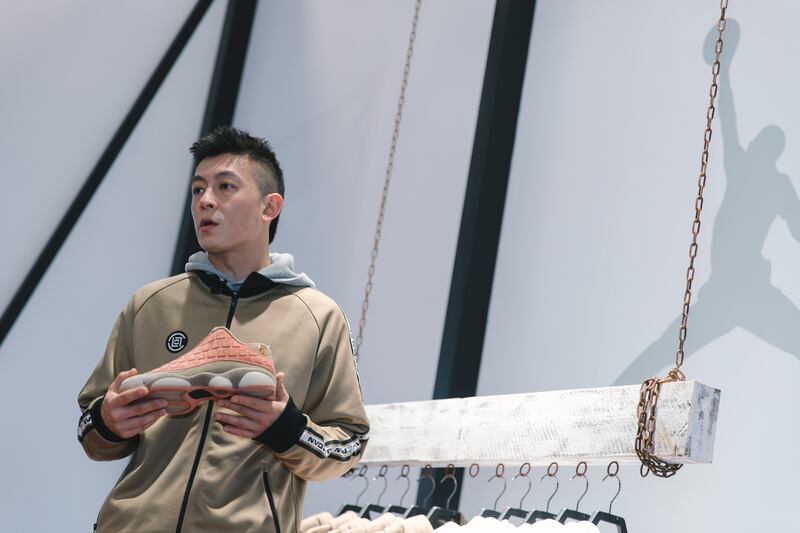
Edison Chen at Innersect | Source: Courtesy
Edison Chen is a central figure in China’s streetwear world. The bad boy singer and actor has remade himself in recent years as a fashion entrepreneur, with his streetwear label CLOT and network of JUICE multi-brand stores, as well as taking on the role of creative director at Innersect.
Like other big players in the Chinese streetwear scene — including singer Kris Wu and other Korean boy-band alum, through whom hip-hop and its adjacent fashion elements have entered the China mainstream — Chen's appeal crosses genders.
“I wear women's clothes not looking at them as women clothes,” Chen said on the side lines of Innersect, describing the unisex appeal of the streetwear aesthetic. “I look at them as genderless. If I like it, I wear it.”
Streetwear is a relatively new phenomenon in China — a joint report from OFashion and Nielsen showed streetwear consumption up 62 percent last year, compared with 2016. This rise has impacted young men and women at a similar time, and with similar force. Having never been seen as the exclusive purview of young men, Chinese streetwear culture is free from misogynistic undertones, making it a friendly environment for young women.
If you look at the majority of women relevant or popular in our world, they wear most of the same shit that guys do, but mix it with something that elevates and makes it more feminine.
“On the street, the onset of brands like Off-White and Supreme has applied equally across the genders, there hasn’t been a disparity in males and females,” Michael Norris, research manager at Resonance China's consumer insights, naming and brand strategy team, Smart, said.
“When it comes to local streetwear fashion brands, [they’re] slightly male-oriented at this stage, [and] have been less successful in picking up female wallet share and mindshare,” Norris told BoF.
ADVERTISEMENT
A Bathing Ape is one of the players looking to address the imbalance. The originally Japanese streetwear brand acquired by Hong Kong-based I.T. Group in 2011 has recently re-launched a specialist womenswear line, Bapy. International player, Converse, has also launched specialist campaigns aimed at female consumers in China.
There is desire and demand for streetwear among China’s female fashion consumers, who adopt the look in conjunction with other segments such as luxury or athleisure. However, questions remain as to the wisdom of crafting specialised lines or marketing content in an arena where genderlessness is part of the appeal.
“I think a lot of females in the industry don't want brands for them specifically,” Highsnobiety’s editorial director, Jian DeLeon, told BoF.
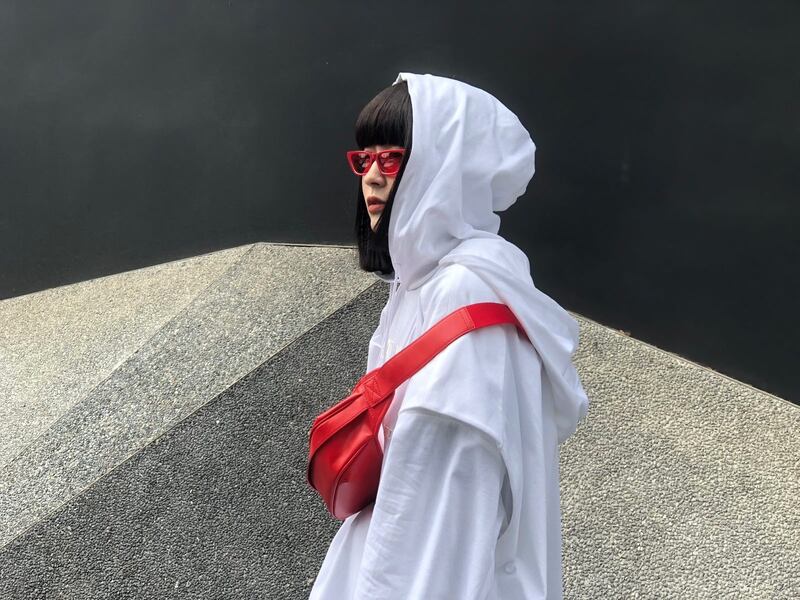
Chinese influencer and stylist Fil Xiaobai |Source: Fil Xiaobai
“If you look at the majority of women relevant or popular in our world, they wear most of the same shit that guys do, but mix it with something that elevates and makes it more feminine, like matching a Nike sports bra with Nike track pants.”
There is also a danger that the sportswear brands spending big to market to China’s post-‘90s female consumers risk being lost in the black hole of oversaturated marketing messages being aimed at this contingent.
“This group of young millennial females in China are perhaps the most over-loaded, over-targeted in the market. The number of brands entering the market that has a very loose targeting strategy that says, ‘We’re going to go for millennial females’, is enormous,” Norris explained.
As streetwear fashion and culture boom in China, brands are still finding the best way to approach a market that has developed in its own unique eco-system, in parallel, but separate to the rest of the world. Women certainly make up a central part of this culture, but that doesn’t necessarily mean a female-centred product and marketing strategy will mean success.
ADVERTISEMENT
Additional reporting by Denni Hu.
时尚与美容
FASHION & BEAUTY

Kim Kardashian and Kylie Jenner | Source:Instagram/Kim Kardashian
Can Kim Keep Up With China?
Reality television star and mogul Kim Kardashian West has expressed her interest in China's beauty scene, and hopes to collaborate with local cosmetic retailers through her KKW beauty brand, according to Chinese state media Xinhua. A major social media presence in her homeland, with 121 million fans on Instagram, Kardashian West has launched a low-key social media presence in the Middle Kingdom, with 162,000 followers on Weibo and 120,000 on a recently opened Xiaohongshu account. This puts her name recognition well behind local celebrities — if she's serious about doing business in China, she will have to make up significant ground in this department in order to compete in a crowded market of major international players and popular Asian brands. (Xinhua)
Chinese Sportswear Newcomer Bets on Experiential Retail
UPAR (Up and Running) is a sleek homegrown player in China's fast-growing sportswear sector, launched in November with a Blade Runner-esque retail proposition in the southern metropolis of Shenzhen. According to Euromonitor, sportswear in China grew 12 percent year-on-year in 2017, and is highly fragmented between international giants and local players. Entering this fray as a start-up seems a daunting proposition, but chief executive Tang Zhanxi (a former general manager of Gucci China) is confident that UPAR's focus on running (where the sport has been fervently embraced by millions of young Chinese urbanites) and experiential retail (consumers can try on clothing and run in an in-store 'space capsule', and also take a shower as part of their shopping experience) gives them a community-building edge over major players in a market where consumers are keen to explore alternatives. (BoF China)
Shanghai Tang Changes Ownership for Second Time in Two Years
China's original incarnation of a home-grown luxury brand, Shanghai Tang has returned to local ownership after being acquired by Shanghai-based private equity firm Lunar Capital for an undisclosed sum. It's no secret the 20-year-old label has floundered in recent years: Richemont Group took over the brand in 2008 and sold it to A. Moda chairman, Alessandro Bastagli, and Hong Kong private equity firm Cassia Investments in February 2017. According to Italian media reports, this latest sale comes after disagreements between Bastagli and Cassia. The new owners have wasted no time in positioning Shanghai Tang in China's e-commerce marketplace, inking a deal with JD.com's Toplife platform to open an official flagship. A hunt for a new designer is also on, with creative director, Massimiliano Giornetti, resigning following the ownership change. (Jiemian)
科技与创新
TECH & INNOVATION
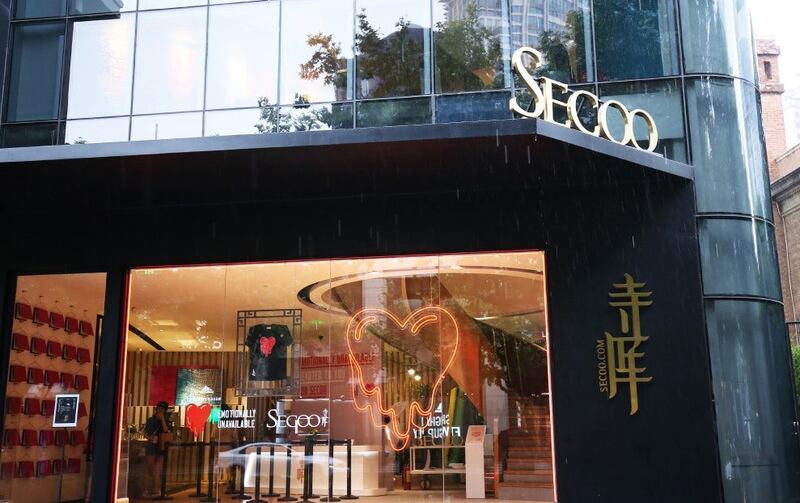
Secoo's brick and mortar store | Source: Courtesy
Secoo Beats Q3 Forecasts
Chinese luxury e-commerce platform Secoo Holding Limited saw a 60.1 percent year-on-year surge in revenue in the third quarter to RMB 1.572 billion ($228.9 million), beating estimates of a revenue increase of 36-40 percent year-on-year to RMB 1.34 billion-1.37 billion. CEO Richard Li said in a statement that the company's number of monthly active users in the quarter increased 91 percent over the previous year, while 97 new brands have signed on to the platform. Secoo said it expects revenue to rise 35-42 percent year-on-year in the fourth quarter to RMB 1.9 billion-2 billion. Even so, the company will have to face rising competition as bigger players, such as JD.com's TopLife and Alibaba's Luxury Pavilion, continue to make inroads into the luxury e-commerce space. (Capital Watch)
ByteDance to Rival WeChat With New Messaging App
ByteDance — the Beijing-based owner of news aggregator Jinri Toutiao and short video platform Douyin — is escalating its war with tech giant Tencent by launching a messaging app, dubbed Flipchat. Tencent has recently challenged ByteDance's stronghold on short video apps with the launch of ten different competitors to Douyin. There is no love lost between the two companies, with a war of words between founders Pony Ma and Zhang Yiming resulting in threats of defamation suits after Douyin videos (as well as those from other non-Tencent-affiliated apps, such as Kuaishou) were banned from WeChat's social media platform. ByteDance has accumulated plenty of heat and hype in 2018 — during which it was named the most valuable start-up in the world — but dethroning WeChat (and it's billion-strong user base) on its home messaging turf might be overambitious. (Technode)
Kering Teams Up With Tech Accelerator For Sustainability Award
At an event in Beijing last week, the Kering Group announced that it was pairing with tech accelerator Plug and Play to launch the Kering Sustainable Development Innovation Awards, aimed at large-scale start-ups in China working to improve the environmental impact of the textile supply chain, with a prize including 100,000 Euros in cash up for grabs. Kering has made fashion's supply chain the target of its ongoing sustainability efforts, and it is apt that the group would look to China as ground zero: the major global textile producer is in the midst of a major overhaul and industry-wide upgrade, as it loses out on mass market manufacturing to cheaper Asian competitors such as Vietnam. (Luxe.co)
消费与零售
CONSUMER & RETAIL
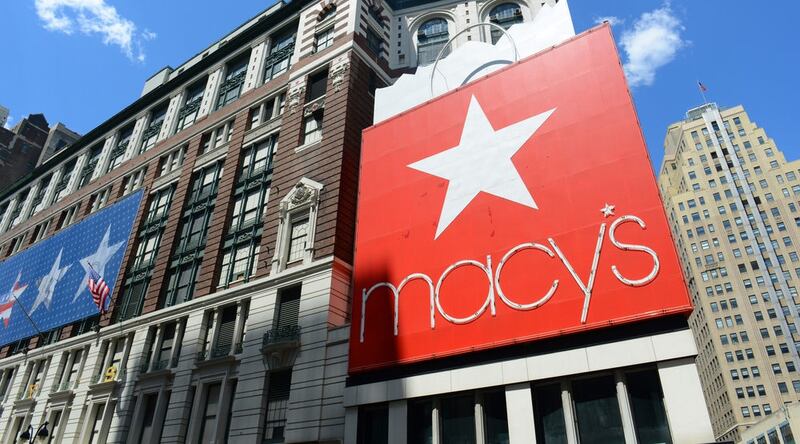
Macy's | Source: Shutterstock
Macy’s Shutters Tmall Store, Exits China
After ending its partnership with brick and mortar giant Fung Retailing in May, Macy's suddenly announced the closure of its China e-commerce presence on Alibaba's Tmall platform — the retailer will now ship to Chinese consumers directly from its US website. These strategic shifts underline how difficult infiltrating the Chinese market can be for foreign retailers, though commentators have also pointed to major flaws in Macy's strategy— including an unwillingness to bring either a unique or compelling foreign offer, or localise their product lines for the market — as key to their inability to gain traction in the country. (Bloomberg)
Chinese Millennial Debt Means Bad News for Luxury
A recent survey from HSBC shows that the debt-to-income ratio of China's post-'90s generation has reached a staggering 1,850 percent, with the average amount of debt this group owes to lending and credit-issuing institutions sitting at over RMB 120,000 ($17,433). This does not bode well for the luxury industry, with Bain & Co. estimating this cohort, alongside younger Gen-Zs, will account for 46 percent of luxury purchases in the market by 2025. If these purchases are fuelled by debt, it casts doubt over the sustainability of spending from China's millennial consumer base, who may have to reign in their spending, especially if current economic volatility continues through 2019. (Jing Daily)
Niche Pre-Loved E-Commerce Player Makes Moves Offline
A beneficiary of belt-tightening among younger consumers is China's second-hand market, especially buzzy new platforms like Plum, which markets itself to China's post-90s as an alternative to the luxury mainstream. The niche e-commerce site recently launched its first offline store in Beijing's fashionable Sanlitun district, and says it plans to open more in the near future as part an omnichannel strategy. The accumulation of luxury goods by Chinese consumers in recent years, alongside the greater acceptance of second-hand goods among young people has led to an opening up of the second-hand market, with Plum being a prominent player in the mid-to-high end sector, boasting monthly GMV of 10 million yuan ($1.45 million). (iFeng)
政治,经济与社会
POLITICS, ECONOMY, SOCIETY
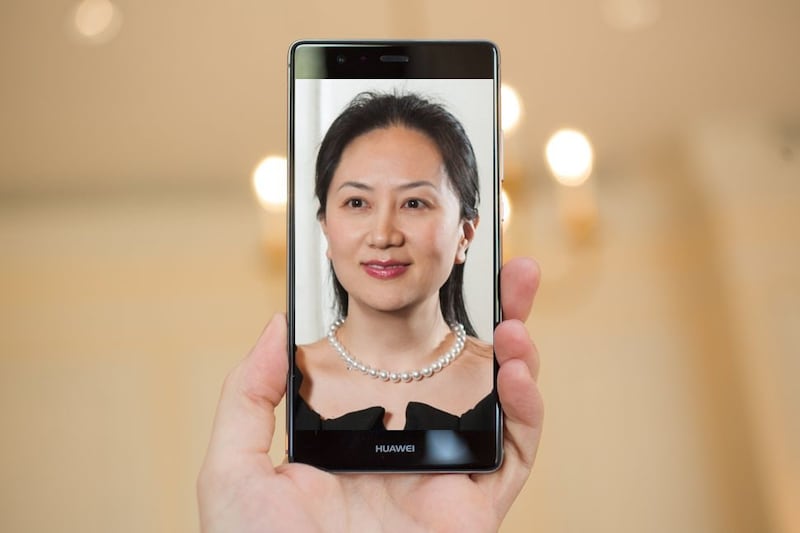
Meng Wanzhou | Illustration by BoF
Meng Wanzhou Released on Bail
The centre of an international storm over her arrest in Canada, and requests for US extradition to face charges of violating sanctions against Iran, Chinese tech giant Huawei's chief financial officer and heir apparent Meng Wanzhou has also become the face of nationalist outrage in China. On December 12, it was announced that the 46-year-old daughter of billionaire Huawei founder Ren Zhengfei (Meng uses the surname of her mother, Ren's first wife) has been released on bail, setting her up for a lengthly extradition fight to the US. Her personal narrative dovetails with the rise of China and consequent backlash by Western powers, wary of Chinese technological monitoring and interference beyond its borders. How Western authorities handle her arrest may continue to have wider implications for the Sino-US relations, and President Trump has openly expressed his willingness to use Meng as geopolitical leverage in his trade talks with China. (CNN)
Beijing Takes Aim at Extravagant Weddings
China's Ministry of Civil Affairs has spoken publicly on the need to reform modern weddings in the country, with the traditional rite of passage becoming more and more extravagant. The ministry referred to commonalities of "sky-high" monetary gifts, a perceived need to keep up with neighbours, and hazings that often lead to assault and violence as reflecting society's "rampant money worship" and "declining morality." Grass-roots government bodies will be asked to standardise marriage rites to address these issues, a ministry official said in an interview with state broadcaster CCTV. This year has seen extended morality campaigns targeting China's entertainment industry, social media environment and even the funeral industry, with vague pronouncements leading to unclear potential reforms across the country. (SCMP)
Has China’s Venture Capital Boom Peaked?
For the first time, Chinese start-ups raised more cash than their Silicon Valley counterparts, notching up $56 billion in six months (compared with $42 billion raised in the US over the same period). But few expect golden age in Chinese venture capital to continue unabated, with tougher regulation and a slowing economy looming ahead, in addition to any economic backlash to come from the trade conflict between China and the US. This hasn't stopped rumours that Japanese investment juggernaut SoftBank is setting up shop in China after years of investing remotely, bringing plenty of cash still to splash along with it. (New York Times)
China Decoded wants to hear from you. Send tips, suggestions, complaints and compliments to our Shanghai-based Asia Correspondent casey.hall@businessoffashion.com.
With consumers tightening their belts in China, the battle between global fast fashion brands and local high street giants has intensified.
Investors are bracing for a steep slowdown in luxury sales when luxury companies report their first quarter results, reflecting lacklustre Chinese demand.
The French beauty giant’s two latest deals are part of a wider M&A push by global players to capture a larger slice of the China market, targeting buzzy high-end brands that offer products with distinctive Chinese elements.
Post-Covid spend by US tourists in Europe has surged past 2019 levels. Chinese travellers, by contrast, have largely favoured domestic and regional destinations like Hong Kong, Singapore and Japan.